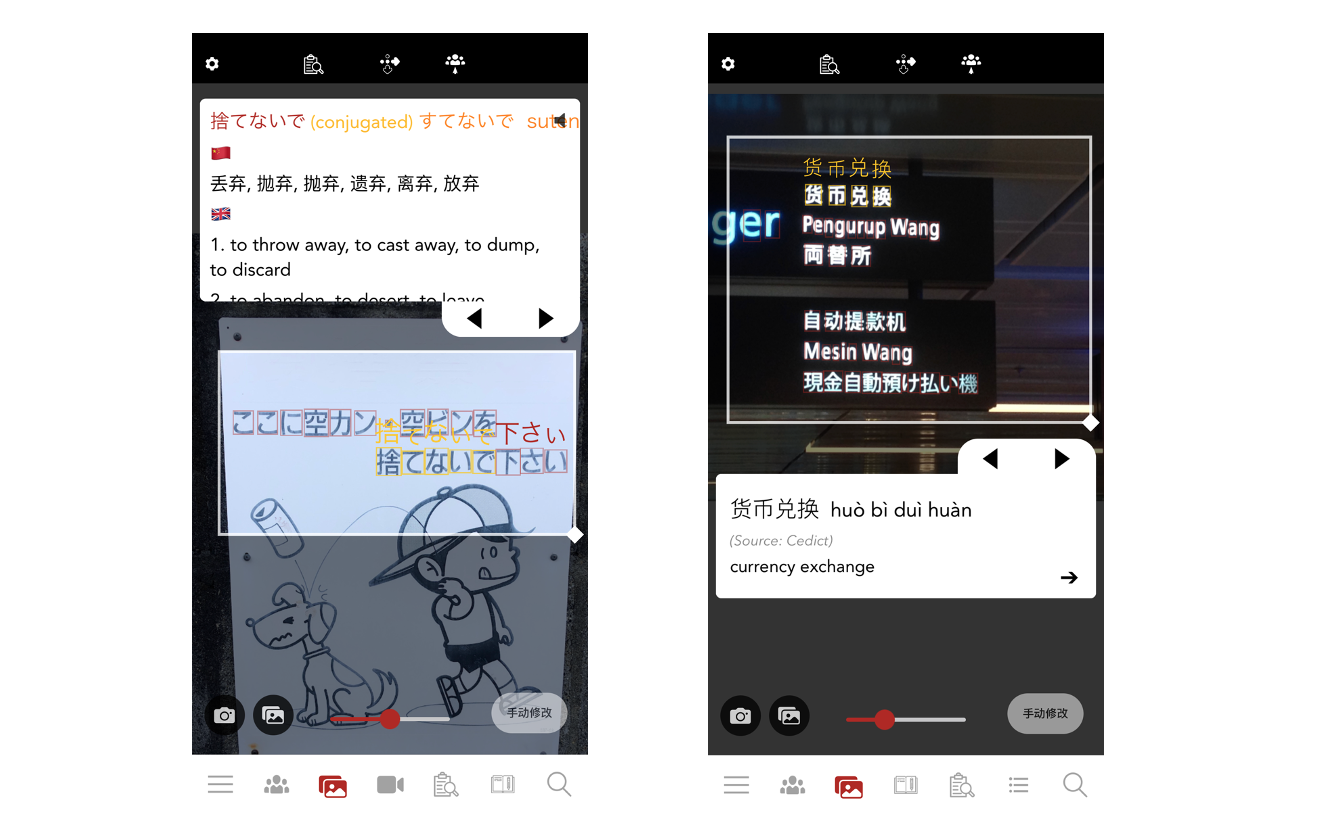Nomad AI was founded in 2018 by Frenchman Vivien Seguy and operates three apps: Chord AI, an automatic chord recognition dictionary, Yomiwa (Japanese) and HanYou (Chinese). Companies registered in Estonia, thanks to its e-residency policy (whether you actually live where, in Estonia can create sub- construction company, and online management), Vivien can work while traveling side. Due to the epidemic, he returned to his hometown of Clermont-Ferrand in central France. The office is located in Turing 22, a joint office space.
Vivien holds a bachelor's degree in mathematics and computer science from École Polytechnique, France, a master's degree in applied mathematics from Imperial College London, and a doctorate in machine learning from Kyoto University, Japan. The iOS versions of Chord AI, Yomiwa and HanYou belong to Vivien’s company Nomad AI, and he now runs these three apps full-time. Guillaume Bellec is currently a postdoctoral researcher at the Federal Institute of Technology in Lausanne (École Polytechnique Fédérale de Lausanne EPFL). The Android version of Chord AI is under the name of his registered company Bellec Research; Antoine Rolet is currently a free software engineer in Tokyo, and the Android versions of Yomiwa and HanYou are owned by He registered company management.
Before entering the Ph.D. program, Vivien has started to make a Japanese OCR (Optical Character Recognition) application. After getting acquainted with Antoine Rolet during his Ph.D., he officially started to develop the Japanese dictionary Yomiwa and further adapted it into the Chinese dictionary HanYou. The two apps were released in 2013 and 2014 respectively. They were one of the first apps with OCR function, even before Google Translate. There are many Japanese and Chinese dictionary applications on the Apple Store and Play Store. Pleco is represented by Pleco. The content of Pleco is more abundant, thanks to its cooperation with professional dictionary editors over the years. Vivien said that Yomiwa and HanYou are the only dictionary applications with unique functions such as optical recognition, morphological text analysis, handwriting recognition, and automatic vocabulary acquisition from news, and plans to further enrich the dictionary content. Yomiwa and HanYou can be downloaded and used for free, and some special features, such as camera OCR or automatic daily word list, need to be unlocked by purchasing the "pro version". The model is a one-time payment, not a membership system.
(Yomiwa and HanYou image source: provided by interview)
Audio recognition is an area that Vivien is more interested in. During the doctoral period, Vivien and Antoine Rolet did a research project on blind source separation (thesis link: Blind source separation with optimal transport non-negative matrix factorization ), the purpose is to separate the mixed sound from a single recording. Meanwhile, another partner Vivien published an article entitled "Spectral Optimal Transport", the use of research Vivien - most Utrans transmission to create a piano note recognition algorithm. Later, Vivien met another doctoral student Guillaume Bellec at the ICLR2018 conference. He is also an amateur musician. They began to discuss how to realize this idea, and the Chord AI project officially began.
Chord AI uses machine learning algorithms to automatically identify chords, keys, beats, etc. in music, and can get audio from local files, microphones, and even YouTube played on the same device. Vivien emphasized the importance of a large amount of accurately labeled data. Several founders first trained algorithms on publicly available annotation data sets (such as Isophonics, JAAH, and Billboard). The data is very limited in quantity and quality and cannot achieve the target accuracy. Vivien hopes to achieve a chord recognition far beyond the latest research papers The most advanced results in So they soon began to build their own database, annotate audio by themselves, and programmatically synthesize music. They also made a private iOS app to simplify the process of annotating songs with chords and beats. Therefore, Vivien stated that Chord AI is more accurate than similar companies in identifying chords, such as Chord Tracker and Chordify; Yamaha's app "Chord Tracker" seems to be more accurate than Chordify or MyChord, but it can only obtain audio from local files. Chord AI can now download and use most features for free. Some special features, such as advanced chord recognition or pitch conversion, need to unlock the "Professional Edition" to use them. The fee is $10/time (as of January 2021), and it is not a membership model.
The iOS and Android versions of Chord AI have a total of approximately 150,000 active users, with a daily download increment of 1,000 (about 50% in the United States, 30% in Asia, and 20% in Europe). Among these 1,000 new users every day, about 5% of the users end up buying the "Professional Edition". Vivien said that Chord AI has about 2 to 3 million potential users in France and more than 100 million potential users worldwide. Yomiwa’s iOS and Android versions have a total of approximately 300,000 active users, with an incremental download of 300 times a day, and approximately 2% of new users eventually purchased the "pro version." The iOS and Android versions of HanYou have about 30,000 active users, with an incremental download of 50 times a day, and about 3% of new users eventually bought the "Professional Edition". In 2020, the total turnover of Chord AI, Yomiwa and HanYou is approximately US$100,000. Vivien expects the total turnover of the three apps to at least triple in 2021.
Vivien is planning to establish a start-up company around Chord AI with Guillaume and develop another application that is not limited to music, but is suitable for a wider range of audio. The headquarters will be located in Europe, but no specific city has been determined. Nomad AI has not raised capital yet, and the initial expenses are borne by the founder. It is now planned to raise 1 million euros for new startups for team building, adding a COO, a CMO, and two to three machine learning engineers.

No comments:
Post a Comment